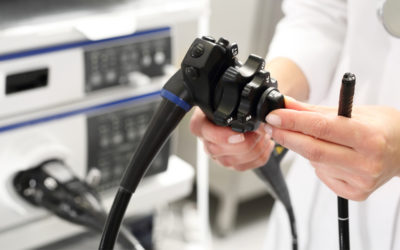Laparoscopic/Robotic Proctectomy
If you’re diagnosed with colon or rectal cancer or have a chronic digestive condition like inflammatory bowel disease (Chron’s disease and ulcerative colitis), your doctor may recommend a proctectomy. This procedure removes all or part of the rectum, depending on your unique needs.
At McKenzie-Willamette Medical Center, the colorectal surgeon specializes in the latest minimally invasive techniques for proctectomy. That includes robotic surgery, a platform that often offers significantly less pain, faster recovery, and quicker return to bowel function.
Types of Proctectomy
Proctectomy is most commonly used to treat rectal cancer. The type of proctectomy used depends on where the cancer is and how much it has spread (stage). Options include:
Transanal (local) proctectomy
This procedure is used for cancer that can be reached through the anal opening and has not spread too deeply. It does not require an incision.
Low anterior resection (LAR)
For cancer that is higher and deeper in the rectum, a more significant section of the rectum may need to be removed through an incision in the lower belly. If there is enough healthy rectum tissue left, the surgeon reconnects it in a process called anastomosis. You will be able to have regular bowel movements through the anus.
Abdominoperineal resection (APR)
If the cancer is close to the anal opening but substantial, you may have an APR procedure. The rectum is removed, and the anal opening is closed. A new opening called an ostomy is created in the abdomen, where the small end of the colon is attached and visible on the outside of the body. This is called a stoma. A discreet collection bag is then fitted around the stoma to collect stool.
Minimally Invasive: Get Back on Your Feet Faster
Traditional “open” proctectomy requires a large incision and a sometimes lengthy and difficult recovery. Whenever possible, McKenzie-Willamette Medical Center’s colorectal surgeon uses a more minimally invasive approach — either laparoscopic or robotic-assisted with da Vinci® technology — which requires just a few small incisions.
During robotic surgery, your surgeon sits at a console next to you and operates using tiny, wristed instruments. The da Vinci system translates every hand movement your surgeon makes in real-time to bend and rotate the instruments with ultra-precision. A camera provides a high-definition, 3D magnified view inside your body, along with an imaging system that helps ensure there is good blood supply when reconnecting the colon and rectum.
These techniques often offer a variety of benefits, including:
- Less post-operative pain
- Less scarring
- Fewer complications
- Shorter hospital stay
- Faster recovery
- Quicker return to bowel function
As with any major surgery, there are potential risks, and not every patient is a candidate for minimally invasive surgery. Your colorectal surgeon will carefully discuss all options with you and help find the right procedure for your health and life.
Find a Specialist
Call 575-543-7200
Related Services and Conditions
Surgical Services
McKenzie-Willamette Medical Center offers general and specialized surgical procedures. Many of these procedures are available on a same-day, outpatient basis. Services include: Abdominal exploration Appendectomy Bladder repair Breast cancer Colon/bowel resection...
Colonoscopy
Colorectal Cancer Screening and Colonoscopy Prep Although colorectal cancer is one of the most common cancers in the United States, it often goes undetected, according to the American Cancer Society. Symptoms do not usually occur until the disease is advanced and 75%...
Gallbladder
Does everything you eat cause pain? If you suffer from pain in the upper right or upper middle part of your stomach after eating it could be your gallbladder causing the issue. The gallbladder is located under the liver, which stores and collects bile produced in the...
Head & Neck Surgery
When medication and other non-surgical treatments cannot relieve pain or symptoms in the head and neck, surgery may be the recommended treatment. For many years, traditional open surgery has been the standard approach to treating many head and neck conditions....
Hemorrhoids
You don’t have to sit still for hemorrhoids Did you know that by age 50, about half of people will experience hemorrhoids? If you’re one of them – and you’ve had enough of the burning, itching and pain – call us today. Treatment is available on an outpatient basis,...
Hernia
Hernias can be more than a pain in the side. If you experience a heavy feeling in your abdomen when you bend, pain when you lift heavy objects or a lump that enlarged when you strain and disappears when you lie down, it could be a hernia. Having it treated will not...
Laparoscopic/Robotic Colectomy
Your colon is vital to your digestive health — so when a condition affects this vital organ, it can be disruptive to your life, and in some cases, life-threatening. While treatments like medication can often help relieve symptoms, sometimes surgery is the best option...
Outpatient Surgery Services
Some of the surgeries that we perform at McKenzie-Willamette Medical Center are outpatient services, meaning they don’t require a hospital stay. Patients come in, have surgery, recover for a few hours and then return home by the end of the day. Advanced technology...








